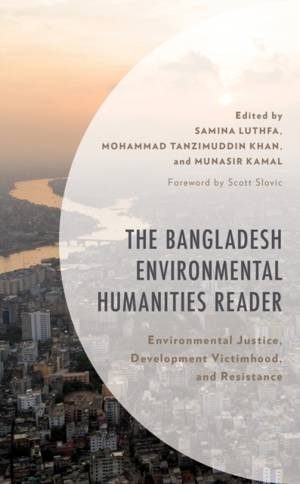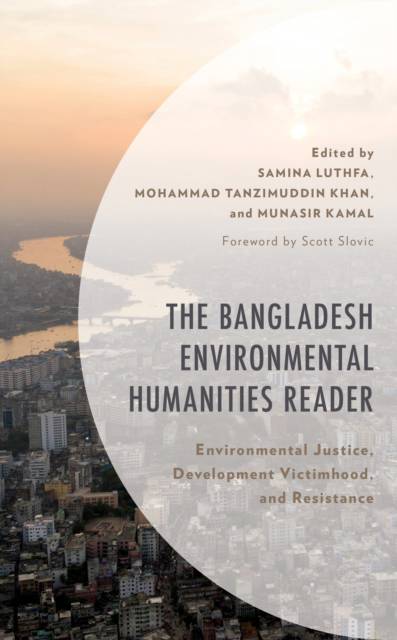
- Afhalen na 1 uur in een winkel met voorraad
- Gratis thuislevering in België vanaf € 30
- Ruim aanbod met 7 miljoen producten
- Afhalen na 1 uur in een winkel met voorraad
- Gratis thuislevering in België vanaf € 30
- Ruim aanbod met 7 miljoen producten
Zoeken
The Bangladesh Environmental Humanities Reader
Environmental Justice, Development Victimhood, and Resistance
€ 177,45
+ 354 punten
Omschrijving
This volume analyses Bangladesh's human-nature/environment relationships in terms of development victimhood, environmental injustices, and resistance of the marginalized. It demonstrates how the popular GDP-based economic growth model helps governments undertake "development" projects, threatening the environment and livelihood of the poor while benefiting the affluent. It represents the extant environmentalism in the literary works in Bangla, and tales of pollution, depletion; and human-nature/environment symbiosis that shows ways to resist victimhood. Against current environmental challenges and other environmental issues, this volume presents the epitome of how politics, biodiversity, and technology meet in many cross-cutting pathways.
Specificaties
Betrokkenen
- Uitgeverij:
Inhoud
- Aantal bladzijden:
- 320
- Taal:
- Engels
- Reeks:
Eigenschappen
- Productcode (EAN):
- 9781498599139
- Verschijningsdatum:
- 29/08/2022
- Uitvoering:
- Hardcover
- Formaat:
- Genaaid
- Afmetingen:
- 152 mm x 229 mm
- Gewicht:
- 639 g

Alleen bij Standaard Boekhandel
+ 354 punten op je klantenkaart van Standaard Boekhandel
Beoordelingen
We publiceren alleen reviews die voldoen aan de voorwaarden voor reviews. Bekijk onze voorwaarden voor reviews.










